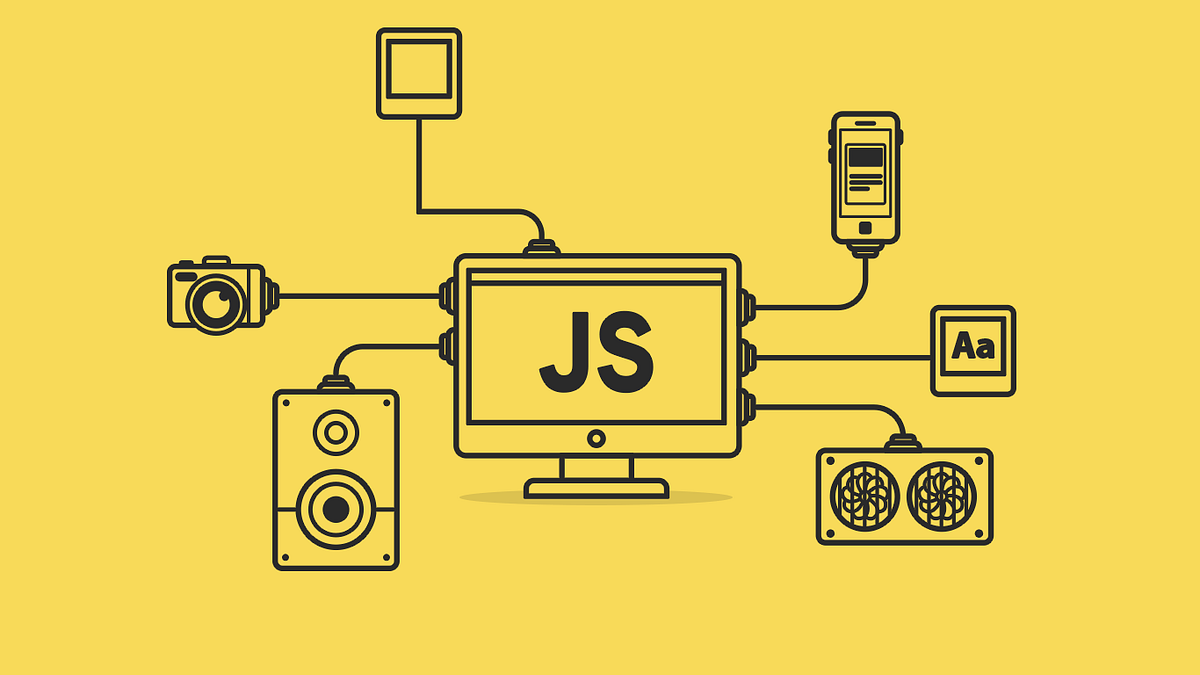
What Can You Do with JavaScript?
JavaScript is a universal programming language, omnipresent across the web and beyond. Its capabilities go far beyond just creating dynamic web pages. This versatile language opens doors to a wide array of possibilities in software development.
In this article, we explore the diverse applications of JavaScript development and how you can put your JavaScript skills to good use.
Key Takeaways:
- JavaScript’s versatility extends beyond web development to tasks such as mobile app development, blockchain development, data visualizations, artificial intelligence (AI), and more.
- Applications like Facebook, Gmail, and Google Maps rely heavily on JavaScript for core functionalities.
- Beginners can start by adding interactive elements, animations, or creating basic games to build a strong foundation.
What Is JavaScript?
JavaScript is a high-level programming language used to make web pages interactive. It works alongside HTML and CSS, which handle structure and design, while JavaScript adds dynamic features that engage users. Initially created by Netscape as a competitor to Microsoft’s VBScript, JavaScript has grown into a robust language powering not just web applications but also server-side development and even mobile apps, thanks to Node.js.
What Can You Do with JavaScript?

Let's explore some of the advanced applications of JavaScript beyond traditional web development.
1. Mobile App Development with Near-Native Performance
JavaScript can be used to develop cross-platform mobile apps that perform close to native. Frameworks like React Native and NativeScript allow developers to create mobile apps for both iOS and Android with one codebase, saving time and effort while ensuring a seamless user experience across devices.
- React Native allows you to build native mobile apps using JavaScript.
- NativeScript integrates with Angular to create mobile apps using native UI components.
2. Front-End Web Development
JavaScript is essential for front-end web development, allowing developers to create dynamic, interactive websites. Popular frameworks include:
- React: A component-based library for building user interfaces.
- Angular: Google’s framework for developing web applications using TypeScript.
- Vue.js: A lightweight framework for creating modern web applications.
3. Back-End Web Development
With Node.js, JavaScript can also be used for back-end web development, enabling full-stack JavaScript development. Popular frameworks include:
- Express.js: A minimalist framework for building scalable server-side applications.
- Sails.js: An MVC framework for building real-time apps.
- Kraken.js: An enterprise-grade framework for secure, scalable applications.
4. Serverless Computing
JavaScript powers serverless application development, where developers build apps without managing servers. Cloud services like AWS Lambda, Google Cloud Functions, and Azure Functions support running JavaScript code in a serverless environment.
5. Desktop App Development
Frameworks like Electron and NW.js allow developers to create cross-platform desktop applications using JavaScript. This means you can build applications for Windows, Mac, and Linux from a single codebase.
6. Game Development
JavaScript has made significant inroads into game development with frameworks such as:
- Phaser: For 2D game development.
- Babylon.js and Three.js: For creating 3D games and visualizations.
7. Artificial Intelligence (AI) Development
JavaScript can be used for AI development by leveraging libraries like:
- TensorFlow.js: A library for developing machine learning models directly in the browser.
- Brain.js: A neural network library for JavaScript.
8. Blockchain Development
In blockchain development, JavaScript is instrumental for building decentralized applications (dApps). Tools like Web3.js facilitate interaction with the Ethereum blockchain to deploy smart contracts and build blockchain apps.
9. Data Visualization
With libraries like D3.js, JavaScript enables developers to create stunning data visualizations that update in real-time, including graphs, charts, and interactive maps.
10. Internet of Things (IoT)
JavaScript is emerging in the field of IoT development. Frameworks like Johnny-Five allow developers to create applications for embedded devices and build IoT solutions.
11. Virtual Reality (VR) and Augmented Reality (AR) Development
JavaScript is also used in VR and AR development. Frameworks like A-Frame and Three.js make it easy to create interactive VR and AR experiences right within a web browser.
12. Automation and Tooling
JavaScript is widely used for automation and tooling. Tools like Gulp, Grunt, and Webpack help automate repetitive tasks and optimize web development workflows.
13. API Integration
JavaScript offers seamless API integration with external services like Google Maps, Twitter, and YouTube. Libraries like Axios and Fetch API are popular for interacting with third-party APIs.
Conclusion
JavaScript’s adaptability and versatility make it an indispensable tool
across the entire software development spectrum. Whether you’re building
mobile apps, serverless applications, desktop apps, or
engaging in cutting-edge technologies like AI or
blockchain, JavaScript provides the flexibility and power
to deliver.
Download free JavaScript notes prepared by Notes Gallery
Click Here to Download






0 Comments